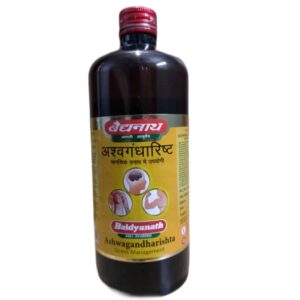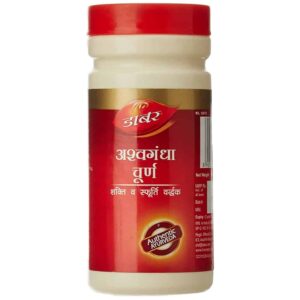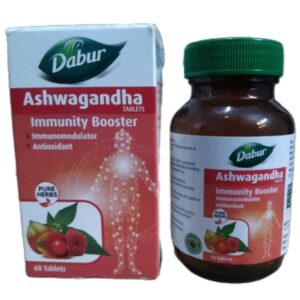Ashwagandha, scientifically known as Withania Somnifera, is an evergreen small bush that grows and is found in India, the middle east, and parts of Africa. For hundreds of years, it has been used as traditional medicine. The roots and the fruit of ashwagandha are used for medical purposes.
It is also known as Indian ginseng, poison gooseberry, and winter cherry. The name ashwagandha means horse-like smell, as its roots smell like a horse. It is a very popular herb used in India and is gaining popularity in different countries as well. Different parts of this plant are used for different treatments. Nowadays it can be bought as a supplement in India as well as in different countries such as the United States.
Synonyms
Withania somnifera, Indian ginseng, poison gooseberry, winter cherry.
Ashwagandha Benefits
Below are listed some of the ashwagandha uses:
1. Can help reduce anxiety, stress, and signs of depression
According to Ayurveda, it is believed that ashwagandha with regular use can help people with high anxiety and stress levels, and symptoms of depression. It is known to help reduce stress, anxiety and depression to some extent.

It is interesting to know that it helps in reducing cortisol in the body (Cortisol is a type of stress hormone in the body). It is also known to stop the stress hormones in the brain and hence reduce anxiety levels and stress.
2. Ashwagandha benefits for men
Taking it regularly increases testosterone and significantly improves the quality of sperms. Taking it can also increase antioxidants in the blood of the person.
3. Can help manage blood sugar levels
Several studies have shown that consuming it regularly can help maintain and increase insulin secretion and improve insulin sensitivity in muscle cells.
4. Can increase strength and muscle mass
Ashwagandha has been shown to significantly increase muscle mass, reduce body fat, and increase strength in the body.
5. Can help improve heart health
It is known to regulate heart health and improve it by reducing blood sugar levels, stress and improving the circulation of blood.
6. Can reduce inflammation
Taking it can help reduce inflammation in various parts of the body and help relieve the area.
7. Can help improve the function of your brain
Taking ashwagandha is proven to have health benefits on the brain as well. It helps in increasing concentration power, focus and memory
Ashwagandha Side Effects
It is a hot herb and aside from its benefits, it is important that we understand that it is not likely that it will suit everyone. As a hot herb, it should be avoided by people with excess heat in their body as it may cause upset stomach, diarrhoea, and vomiting, and though rarely, liver problems may occur.
Precautions
Avoiding the use of herbs like ashwagandha during extreme conditions is recommended as the body type of a person can be different and the effects can vary according to each person.
1. Pregnancy and breastfeeding
Pregnancy and breastfeeding are two major sensitive parts of motherhood for both the mother and the child. It can be too heavy for a mother to consume and as a hot herb, foods with excess heat should be avoided during pregnancy. Taking it during breastfeeding can also affect the milk produced by the body, causing constipation and vomiting to the child.

2. Autoimmune diseases
It can cause the immune system to become overly active and it is hurtful in autoimmune diseases such as multiple sclerosis (MS), lupus (systemic lupus erythematosus, SLE), rheumatoid arthritis (RA). If you have any autoimmune conditions or any major disease, it’s best to consult your doctor before starting and experimenting with new herbs.
3. Thyroid
It increases thyroid hormone levels and one should avoid this herb when one is suffering from any thyroid conditions and/or are taking thyroid hormone medications.
4. Surgeries
Use of ashwagandha can cause the nervous central system of the body to slow down. During surgery, the use of anaesthesia can cause an increase in the slow down, and hence it should be avoided 2 weeks before surgery and 2 weeks after surgery.
Ashwagandha Dosage
Ashwagandha being a heavy herb should not be consumed in big amounts.
Mixing spoonfuls of its root powder mixed with warm milk can be consumed in the morning and in the evening to reap its benefits.
You can also consume it in the form of tablets. Some of the best tablets available in the market are Dabur Ashwagandha Tablets and Himalaya Ashwagandha Tablets.
It can also be consumed in the form of Churan.
Frequently asked questions
Can ashwagandha increase height?
Where to find ashwagandha?
Does ashwagandha make a person sleepy?
How does Ashwagandha taste?
What does ashwagandha look like?

Himani Jain
I am a 20 something who is vivacious at heart and a virtuoso at work, and who is confused and intrigued about life at the same time.
Related Products
-
Ayurveda
Baidyanath Ashwagandharishta
Rated 0 out of 5₹215.00₹200.00You Save: ₹15.00 (7%)
Add to cartApplicable Offers
- Free Shipping on Orders above ₹999.
- Extra 5% OFF on Orders above ₹1999 Use Coupon Code: DISCOUNT5.
-
Ayurveda
Himalaya Ashwagandha Tablets (60 Tablets)
Rated 0 out of 5₹180.00₹179.00You Save: ₹1.00 (0.6%)
Add to cart -
Dabur
Dabur Ashwagandha Churna (60g X 2 Pack)
Rated 0 out of 5₹180.00₹170.00You Save: ₹10.00 (5.6%)
Add to cart -
Dabur
Dabur Ashwagandha Tablets (60 Tablets)
Rated 0 out of 5₹175.00₹170.00You Save: ₹5.00 (2.9%)
Add to cart
Recent Articles

Kalonji- Black Cumin
Kalonji is a flowering plant native to Southern Europe, Southwest Asia and North Africa. Scientifically, it is referred to as “Nigella Sativa”. These seeds have

Honey
High in beneficial plant compounds and offering several health benefits, honey is a relatively healthy alternative to other sweeteners used in daily life and cuisine

Dalchini – Wooden Rolls
Dalchini or cinnamon are the strips of the inner bark of a tropical evergreen tree. These are pale-brown to tan strips which are generally thin





